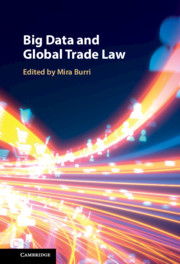The ‘new NAFTA’ agreement between Canada, Mexico, and the United States maintained the system for binational panel judicial review of antidumping and countervailing duty determinations of domestic government agencies. In US–Mexico disputes, this hybrid system brings together Spanish and English-speaking lawyers from the civil and the common law to solve legal disputes applying domestic law. These panels raise issues regarding potential bicultural, bilingual, and bijural (mis)understandings in legal reasoning. Do differences in language, legal traditions, and legal cultures limit the effectiveness of inter-systemic dispute resolution? We analyze all of the decisions of NAFTA panels in US–Mexico disputes regarding Mexican antidumping and countervailing duty determinations and the profiles of the corresponding panelists. This case study tests whether one can actually comprehend the ‘other’. To what extent can a common law, English-speaking lawyer understand and apply Mexican law, expressed in Spanish and rooted in a distinct legal culture?
